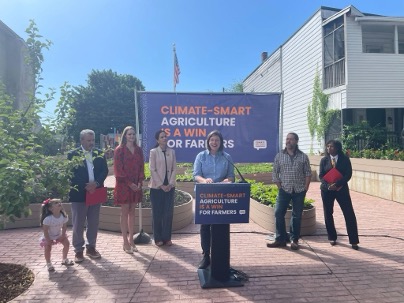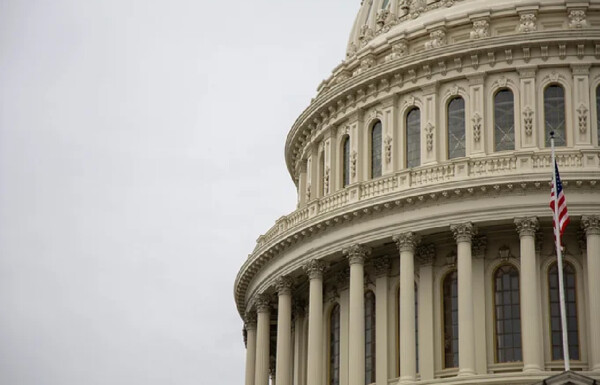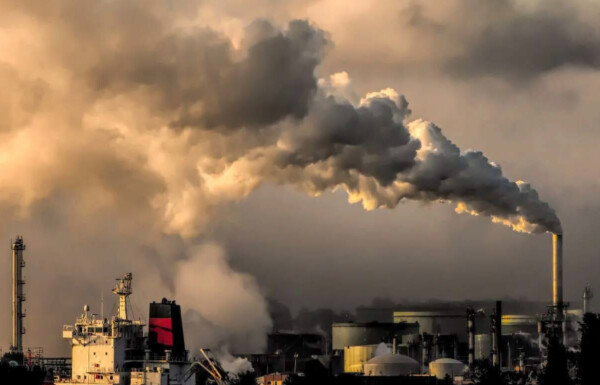Scranton Mayor Paige Cognetti, Pennsylvania Elected Officials, Farmers, and Community Leaders Underscore Continued Need for Critical Federal Funding to Combat Climate Change

Speakers call on federal officials to oppose any attempts to reduce investments in climate smart agricultural programs
(Scranton, PA) – Today, Scranton Mayor Paige Cognetti, state elected officials, farmers, and community leaders came together to demonstrate how the federal Inflation Reduction Act (IRA), signed into law in 2022 by President Biden, is now providing critical funding for farmers to help them mitigate the dire impacts of climate change. Speakers highlighted the ways in which the IRA is increasing climate-smart agricultural practices while bolstering Pennsylvania’s agricultural economy.
"Investment in climate-smart agriculture through the IRA is vital for Scranton," said Mayor Cognetti. "In Lackawanna County, where food insecurity affects thousands of households, supporting sustainable farming practices is essential. This funding helps our farmers adopt innovative methods that provide healthy, nutritious food to our community and address the broader challenges of climate change. By focusing on sustainable agriculture, we can strengthen our local food systems and ensure that everyone has access to the food they need."
Pennsylvania’s agriculture industry is a key component of its economy, contributing significantly to both employment and economic output. Agriculture supports over 593,600 jobs and generates $132.5 billion in economic impact annually. However, climate change poses significant risks to this sector, with increasing temperatures and more frequent extreme weather events threatening crop yields and farm viability.
The agriculture sector is both contributing to and suffering from the effects of the climate crisis. More frequent and intense storms, drought, air pollution, and other climate-related impacts are resulting in crop loss, land degradation, unhealthy conditions for farmworkers, higher costs to farmers and ranchers, greater challenges for communities experiencing food insecurity, and more unpredictable seasons affecting planting and harvest. At the same time, the agriculture sector itself accounts for 11% of the carbon pollution in the United States.
State Rep. Kyle Donahue, PA HD-113, discussed the importance of sustainable farming practices. "With the support from the IRA, Pennsylvania’s farmers can implement sustainable practices that not only enhance crop resilience but also contribute to reducing our overall carbon footprint,” he said. “This investment is vital for the future of our local, family farms and for maintaining the health and prosperity of our communities in the face of climate change."
Rashida Lovely, a member of the Pennsylvania Department of Environmental Protection’s Environmental Justice Board, highlighted the broader community impacts. "Investing in climate-smart agriculture through the IRA is crucial for fostering resilient communities,” said Lovely. “These funds address food insecurity and promote sustainable farming practices, ensuring that all Pennsylvanians have access to fresh, nutritious food while protecting our environment for future generations."
The IRA designates nearly $40 billion to climate-smart agricultural initiatives, including $19.5 billion to enhance conservation methods like low-till farming and carbon sequestration. An additional $14 billion encourages rural communities to adopt renewable energy sources, fostering both job growth and a cleaner environment.
Liz Krug from Endless Roots Farm shared her perspective as a local farmer. "The IRA can be a game-changer for early adopters to climate resilient farming, like ourselves,” said Krug. “Thanks to Senator Casey and Congressman Cartwright, local farmers and community stakeholders are collaborating to pursue Climate Smart Agriculture funding, which will allow us to further invest in renewable energy and sustainable farming. It’s crucial that the full funding for these conservation programs are preserved so that more farmers are able to adopt these practices."
As the 2018 federal farm bill nears its expiration, safeguarding climate-smart agricultural investments is more crucial now than ever. Speakers also called on federal officials to thwart any attempts to reduce or redirect the money for climate smart agricultural programs during the consideration of a new Farm Bill.



